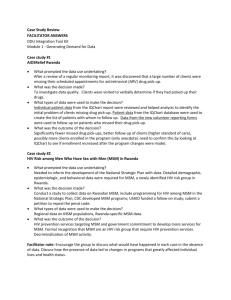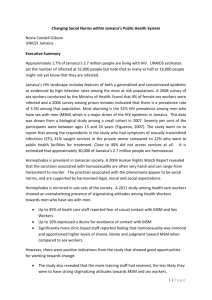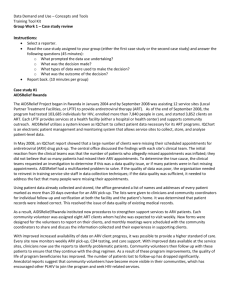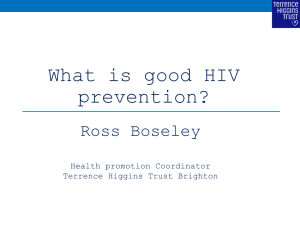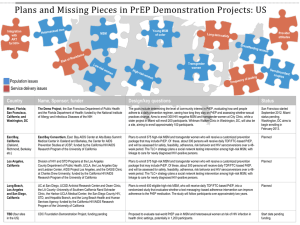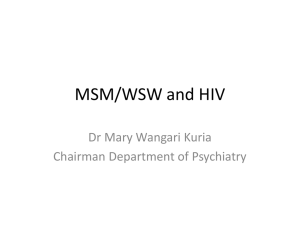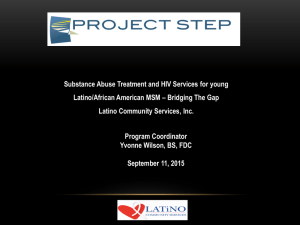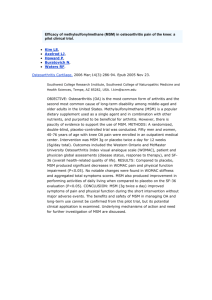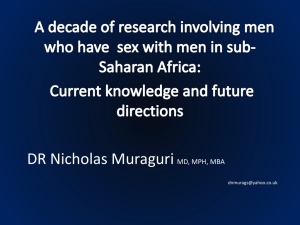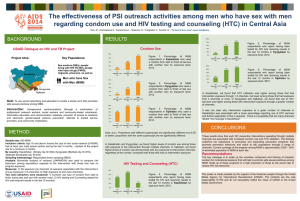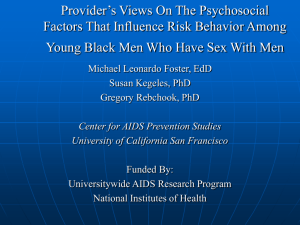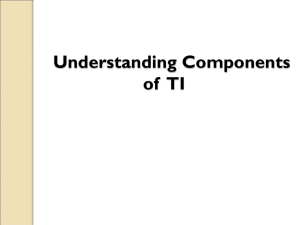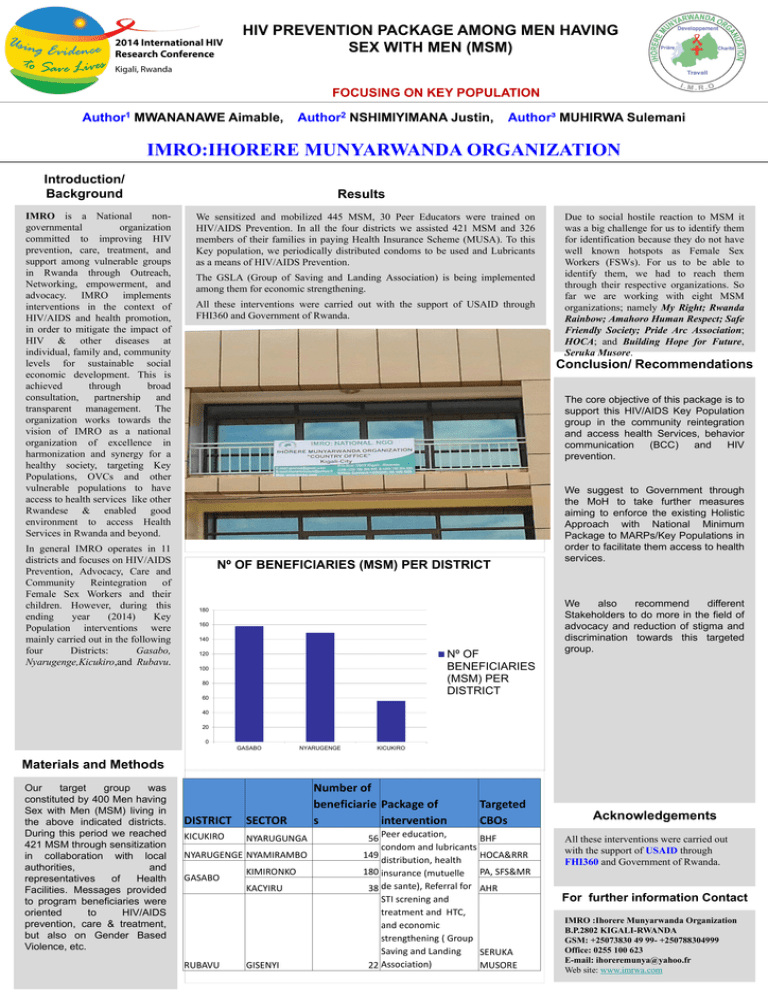
HIV PREVENTION PACKAGE AMONG MEN HAVING
SEX WITH MEN (MSM)
Affiliatio
n Logo
FOCUSING ON KEY POPULATION
Author1 MWANANAWE Aimable,
Author2 NSHIMIYIMANA Justin,
Author³ MUHIRWA Sulemani
IMRO:IHORERE MUNYARWANDA ORGANIZATION
Introduction/
Background
IMRO is a National
nongovernmental
organization
committed to improving HIV
prevention, care, treatment, and
support among vulnerable groups
in Rwanda through Outreach,
Networking, empowerment, and
advocacy. IMRO implements
interventions in the context of
HIV/AIDS and health promotion,
in order to mitigate the impact of
HIV & other diseases at
individual, family and, community
levels for sustainable social
economic development. This is
achieved
through
broad
consultation, partnership and
transparent management. The
organization works towards the
vision of IMRO as a national
organization of excellence in
harmonization and synergy for a
healthy society, targeting Key
Populations, OVCs and other
vulnerable populations to have
access to health services like other
Rwandese & enabled good
environment to access Health
Services in Rwanda and beyond.
In general IMRO operates in 11
districts and focuses on HIV/AIDS
Prevention, Advocacy, Care and
Community
Reintegration
of
Female Sex Workers and their
children. However, during this
ending
year
(2014)
Key
Population interventions were
mainly carried out in the following
four
Districts:
Gasabo,
Nyarugenge,Kicukiro,and Rubavu.
Results
We sensitized and mobilized 445 MSM, 30 Peer Educators were trained on
HIV/AIDS Prevention. In all the four districts we assisted 421 MSM and 326
members of their families in paying Health Insurance Scheme (MUSA). To this
Key population, we periodically distributed condoms to be used and Lubricants
as a means of HIV/AIDS Prevention.
The GSLA (Group of Saving and Landing Association) is being implemented
among them for economic strengthening.
All these interventions were carried out with the support of USAID through
FHI360 and Government of Rwanda.
Due to social hostile reaction to MSM it
was a big challenge for us to identify them
for identification because they do not have
well known hotspots as Female Sex
Workers (FSWs). For us to be able to
identify them, we had to reach them
through their respective organizations. So
far we are working with eight MSM
organizations; namely My Right; Rwanda
Rainbow; Amahoro Human Respect; Safe
Friendly Society; Pride Arc Association;
HOCA; and Building Hope for Future,
Seruka Musore.
Conclusion/ Recommendations
The core objective of this package is to
support this HIV/AIDS Key Population
group in the community reintegration
and access health Services, behavior
communication
(BCC)
and
HIV
prevention.
Graph 1/Table/Picture
Nº OF BENEFICIARIES (MSM) PER DISTRICT
180
160
140
Nº OF
BENEFICIARIES
(MSM) PER
DISTRICT
120
100
80
60
We suggest to Government through
the MoH to take further measures
aiming to enforce the existing Holistic
Approach with National Minimum
Package to MARPs/Key Populations in
order to facilitate them access to health
services.
We
also
recommend
different
Stakeholders to do more in the field of
advocacy and reduction of stigma and
discrimination towards this targeted
group.
40
20
0
GASABO
NYARUGENGE
KICUKIRO
Materials and Methods
Our
target
group
was
constituted by 400 Men having
Sex with Men (MSM) living in
the above indicated districts.
During this period we reached
421 MSM through sensitization
in collaboration with local
authorities,
and
representatives
of
Health
Facilities. Messages provided
to program beneficiaries were
oriented
to
HIV/AIDS
prevention, care & treatment,
but also on Gender Based
Violence, etc.
DISTRICT
KICUKIRO
SECTOR
NYARUGUNGA
NYARUGENGE NYAMIRAMBO
GASABO
KIMIRONKO
KACYIRU
RUBAVU
GISENYI
Number of
beneficiarie Package of
s
intervention
Targeted
CBOs
Peer
education,
56
BHF
condom and lubricants
149
HOCA&RRR
distribution, health
180 insurance (mutuelle PA, SFS&MR
38 de sante), Referral for AHR
STI screning and
treatment and HTC,
and economic
strengthening ( Group
Saving and Landing
SERUKA
22 Association)
MUSORE
Acknowledgements
All these interventions were carried out
with the support of USAID through
FHI360 and Government of Rwanda.
For further information Contact
IMRO :Ihorere Munyarwanda Organization
B.P.2802 KIGALI-RWANDA
GSM: +25073830 49 99- +250788304999
Office: 0255 100 623
E-mail: ihoreremunya@yahoo.fr
Web site: www.imrwa.com

